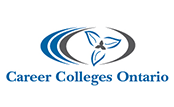Pharmacy Assistant Program Outline
(Please note that programs may be changed or upgraded to meet the demands of industry without notice)
Core Pharmacy Technician Skills:
Pharmacy Fundamentals
Overview of the history of pharmacy and the Canadian health care system; various types of pharmacy settings; the federal and provincial laws governing the pharmacy practice; roles of the pharmacist, pharmacy technician and pharmacy assistant; medical and pharmaceutical terminology, pharmaceutical abbreviations, prescription language and interpretation; introduction to various drug dosage forms.
Introduction to Human Anatomy and Physiology
Explore the various body systems and gain a basic understanding of the structure and functions of different organs and systems of the body and how they correlate with drug action. Learn common diseases with their pathophysiology.
Pharmacology
Learn the basic fundamentals of pharmacology, classification of drugs based on body system and therapeutic uses, mechanism of drug action, side effects, auxiliary labels, generic and brand name drugs, drug schedules, prescription and non-prescription drugs, legal requirements for narcotics and other drugs.
Pharmacy Calculations
Understanding different units of measurements including metric, apothecary and household system and their conversions from one to another. Working with drug strength, dilution, infusion rates for calculating drug dosages, quantities to dispense, preparation of extemporaneous compounds, application of business mathematics and third party billing.
Pharmacy Software
Hands on training on using pharmacy software Kroll for entering prescriptions and printing labels, maintaining patient’s profile, drug search, doctor search, special instructions, third party billing and inventory management.
Customer Service Fundamentals
Review verbal and written communication skills, customer service, dealing with health care professionals, peers and dispensary staff; problem solving techniques, handling complaints, and confidentiality.
Community Practice
Exposure to product preparation from receiving prescription to releasing the prepared product, purchasing and inventory control, handling and dispensing of narcotics, third party billings and Ontario Drug Benefit plan, preventing dispensing errors, medication error, pharmacy law, and record keeping and documentation.
Pharmacy Compounding
Equipment use and maintenance, accuracy in measuring, mixing and packaging techniques with pharmaceutical elegance, preparation of mixtures, creams and ointments, calculations related to compounding, applying pharmacy legislations to compounding.
Community Placement
During the last 4 weeks of the program the student will supplement their in-class training with an “on the job” practical placement in a community/retail pharmacy setting. The placement provides an opportunity to apply skills learned in the classroom, gain confidence, and open doors to future employment. Successful completion of the 150 hours of placement is required for graduation.
Workplace Skills:
CPR and First Aid Certification
A two-day certified course in First Aid and CPR for adults is provided at the College
Student Success Strategies
Emphasis is placed on thinking about success from day one and developing the non-technical skills to enhance personal, academic and career success. Topics include: goal setting, time management, learning styles, memory techniques, note taking and test writing techniques.
Computer Essentials for Pharmacy Practice
- Learn the basics of the Windows operating system, computer hardware, and software
- Practice effective file management
- Explore various Internet search techniques
- Obtain touch typing skills with a goal of 45 words per minute before graduation
- Create, edit, and print Microsoft Word letters and reports
- Format documents and control the page appearance
- Create, modify, and print Microsoft Excel workbooks
- Perform calculations using formulas and functions
- Apply formatting to a worksheet
Career and Employment Strategies
This module takes the students through the entire job search process including:
- Where and how to look for a job
- Effective resume preparation
- Creating a cover letter tailored to the position
- Interview preparation
- Job search management
- Self-confidence and self-esteem building
- Mock interviews
- Follow up after the interview


